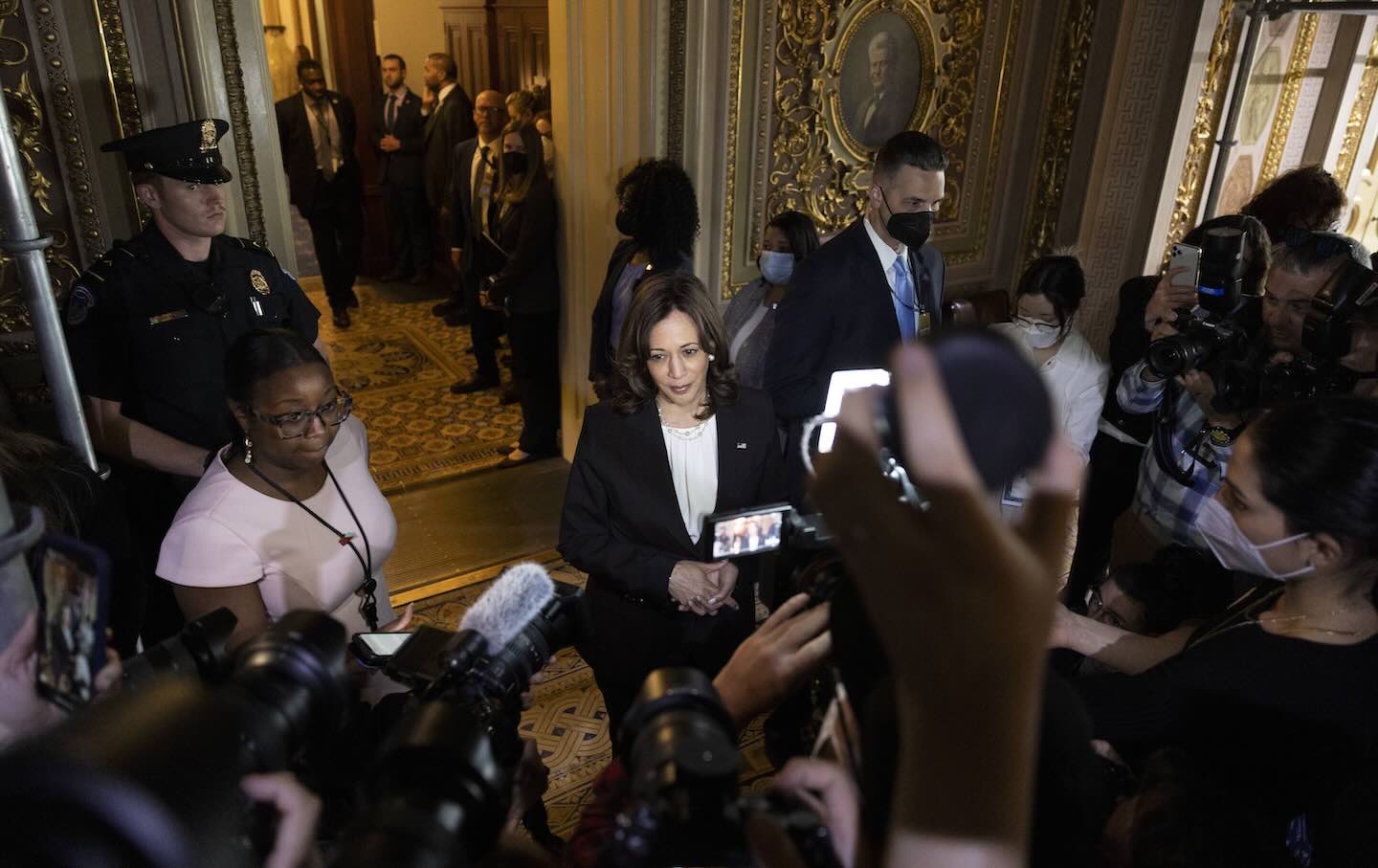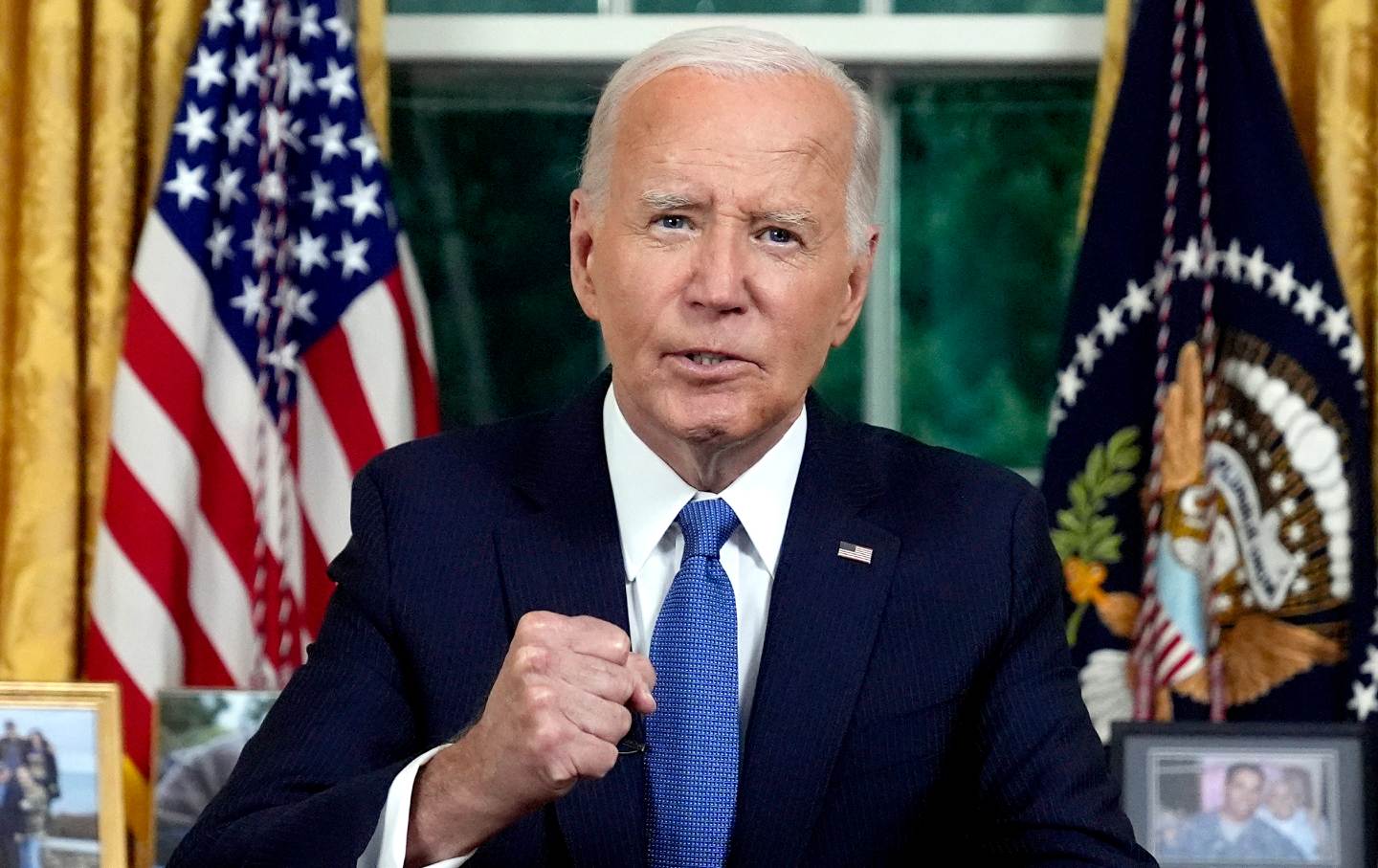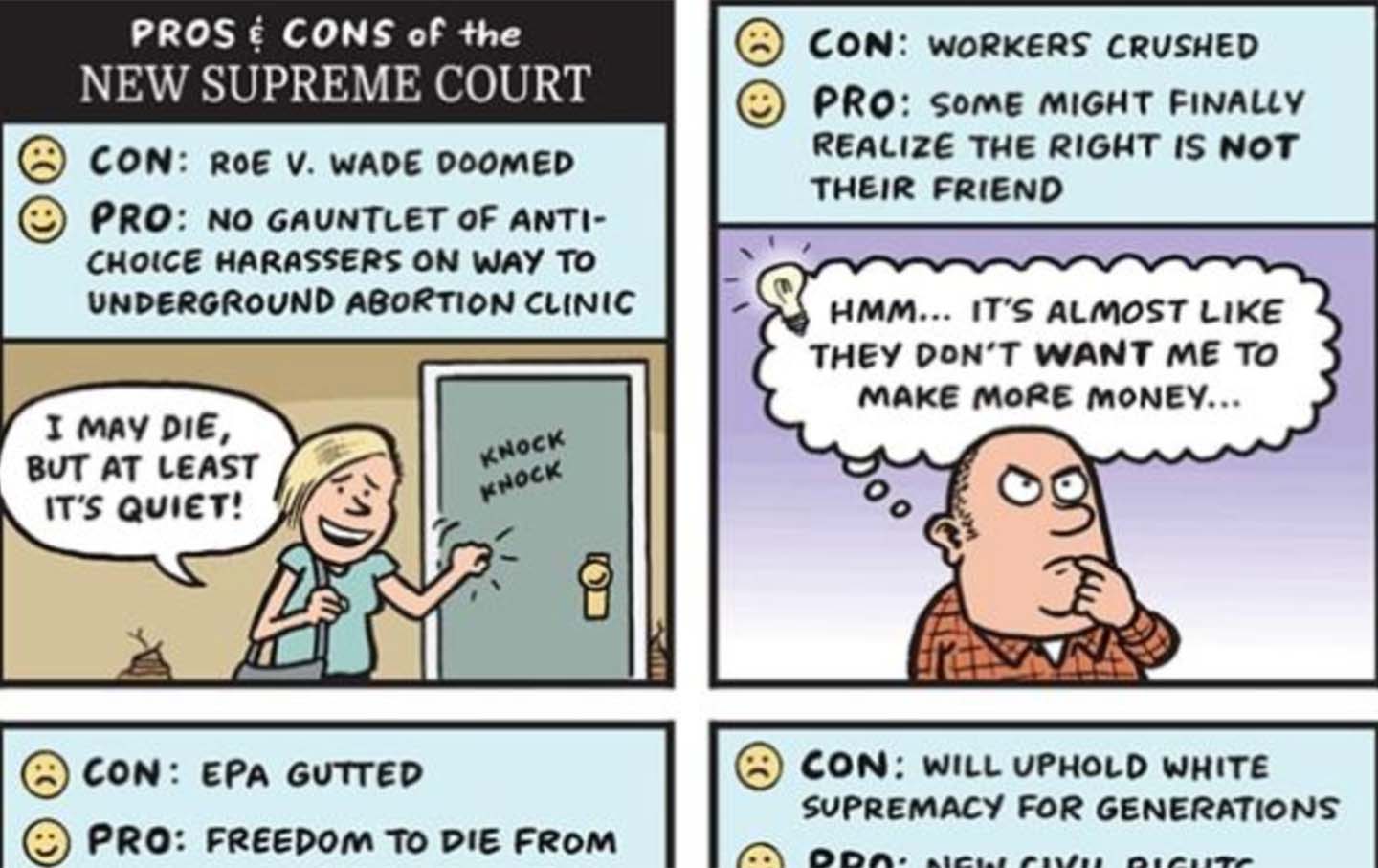On Immigration, Biden Made His Own Bed
The president is still trying to appease his conservative critics on immigration, putting his reelection at risk.

After years of grandstanding, House Republicans have initiated impeachment proceedings against Homeland Security Secretary Alejandro Mayorkas, accusing him of fomenting a “crisis” at the border. Meanwhile, members of the Freedom Caucus are threatening a government shutdown unless new immigration enforcement measures are added to the general spending bill. The GOP’s goal is to turn the 2024 election into a referendum on the Biden administration’s handling of immigration, framed by the notion of a crisis that has spilled beyond the southern border and into cities across the country.
Democrats, too, have bought into the crisis framing. Mayors of blue cities have blamed municipal budget cuts on efforts to provide housing to asylum seekers. These leaders have generally reserved their ire for Texas Governor Greg Abbott—who since 2022 has bused migrants from his state to so-called sanctuary jurisdictions—but they’ve also recently turned on the president, and with good reason.
Abbott’s busing scheme was designed to overwhelm and embarrass Democratic leaders, and it worked. A recent CBS News investigation found that the governor’s office stopped alerting nonprofits in Texas that coordinated with partners elsewhere in the country about bus arrival or departure times, turning the illusion of chaos into reality. “Every state is now a border state” has become a Republican refrain. Three years into Biden’s term, however, it’s impossible to blame conservatives for the current state of affairs. The administration can no longer claim to have been blindsided by Abbott’s busing stunt, nor by the global rise in migration and displacement. Biden has not only failed to craft a compelling counternarrative to Republicans’ ceaseless fearmongering over the border, but also to alleviate the very real problems that Abbott’s sabotage attempt has caused in Democratic-led cities.
There are, of course, limits to what the White House can do. Democrats’ pleas for federal aid and sped-up work-permit processing times for asylum seekers have gone unanswered, not entirely from a lack of political will but because both would require congressional approval. And the administration has taken some steps to get migrants into the workforce and out of city-funded housing, including extending temporary protected status to Venezuelans; expediting work permits for people allowed into the country under humanitarian parole (who are allowed to apply for work authorization immediately after arrival); and expanding the eligibility of existing work permits from a maximum of two to five years.
But there’s plenty more Biden could do without congressional approval. Some asylum seekers arrive in the US with destinations in mind, but many don’t. Instead of letting Texas lead the charge on where these migrants go, the federal government could ensure they end up in places where they can find a support network and housing. Last spring, the American Immigration Council urged the White House to establish a Center for Migrant Coordination within the Department of Homeland Security, which would streamline the process of relocating migrants—and, crucially, wrest it from Abbott and others who have turned busing into a political cudgel. Illinois Governor J.B. Pritzker echoed this request last October when he asked Biden to designate a single person from the White House to coordinate a federal response to migrants.
Republicans would inevitably decry a coordinated federal response. But would that be so different from what they’re already doing? Conservatives began sounding the alarm about a migrant crisis the moment Biden was inaugurated. Biden campaigned on reforming the immigration system, but after his early efforts to do so were stymied by Trump-appointed federal judges, his administration continually ceded ground on immigration. If Biden had ordered the CDC to lift Title 42—the public health provision that Trump used to shut down asylum at the border—in 2021 instead of extending it multiple times over the next two years, the bottleneck of asylum seekers at the border may not have been as significant. Had the administration coordinated with local leaders when Abbott began his busing program in 2022, Democratic leaders may not have felt abandoned by the White House. The underlying problems in the asylum system would still be present, but Biden could rightfully blame Congress for refusing to legislate a solution without looking like he was shirking responsibility on immigration.
Instead, the administration attempted to appease its critics on the right, not realizing—or perhaps not caring—that Republicans will always crow about a crisis at the border no matter what Biden does. They don’t actually want to win their immigration fight; they “plainly want more dysfunction and chaos at the border,” as David Dayen wrote in The American Prospect. But Biden will foolishly grant them a victory anyway by continuing to cede ground on immigration, alienating his own allies—and possibly costing him the 2024 election—in the process.
Thank you for reading The Nation
We hope you enjoyed the story you just read, just one of the many incisive, deeply-reported articles we publish daily. Now more than ever, we need fearless journalism that shifts the needle on important issues, uncovers malfeasance and corruption, and uplifts voices and perspectives that often go unheard in mainstream media.
Throughout this critical election year and a time of media austerity and renewed campus activism and rising labor organizing, independent journalism that gets to the heart of the matter is more critical than ever before. Donate right now and help us hold the powerful accountable, shine a light on issues that would otherwise be swept under the rug, and build a more just and equitable future.
For nearly 160 years, The Nation has stood for truth, justice, and moral clarity. As a reader-supported publication, we are not beholden to the whims of advertisers or a corporate owner. But it does take financial resources to report on stories that may take weeks or months to properly investigate, thoroughly edit and fact-check articles, and get our stories into the hands of readers.
Donate today and stand with us for a better future. Thank you for being a supporter of independent journalism.








